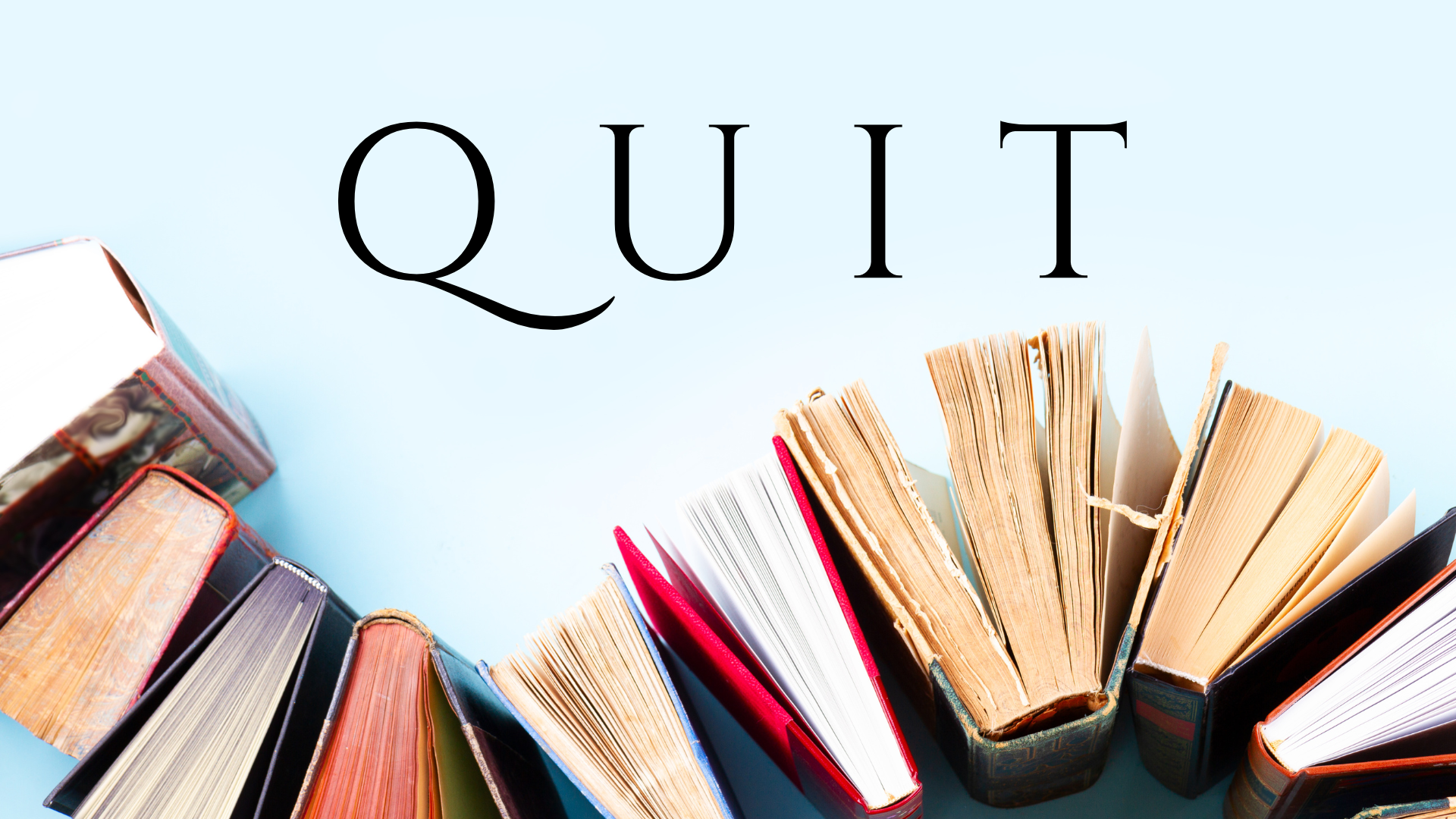Quit: A Book Club Snapshot
In ‘Quit’ Annie Duke explores the critical moments when walking away can be more beneficial than sticking it out, highlighting the rewards of quitting and the challenges that need to be overcome to take these decisions. The IceLab book club enjoyed reading this book in the Spring term 2024 and all the discussions it prompted. Here is their take.
There is a lot of stigma around quitting which can often make it a very difficult decision to take. Annie Duke begins ‘Quit’ by suggesting that we radically turn this view point on its head, instead framing quitting as a positive and necessary step in a fulfilling life. Not only does quitting allow us to let go of pursuits that no longer serve us, but it also frees up time and space for us to explore new ventures and directions.
Reading ‘Quit’ provided an interesting platform for IceLabbers to share both our own and second-hand stories of quitting decisions and where they have led. In some cases, we had examples of quitting one (or more?) research direction to the ones that we are pursuing today. In general, we reported positive outcomes when we decided to quit something, but we also found that there were moments with other things that we chose to pursue when we might have wanted to quit. Knowing when and how to make these decisions–when to quit and when to persevere with grit–can be difficult.
Duke acknowledges the difficulty of deciding to quit in her book, especially emphasising the mental hurdles we might come up against (e.g. think of all the sunken costs!). However, she offers some strategies to combat these challenges:
- Presenting our situation to an objective party (one who loves us but is happy to tell us the truth) and letting them decide for us.
- Setting ‘kill criteria’ to decide whether to stick or quit:
“If we reach state X by time Y we will continue, otherwise we will quit.” - Diversifying as a way to keep our options open and allowing us to be presented with new opportunities. Since saying, “yes,” can often be easier than, “no,” seeking new yeses could make it easier to quit something old.
We found the ‘kill criteria’ a particularly useful tool to incorporate into our own research practices. Determining the right criteria to set might take us time and experience, however, Duke also provided some insight here, telling us to tackle the ‘monkey’ before the ‘pedestal’: if tasked with producing a monkey doing backflips on a pedestal, the most improbable part of the task is training the monkey. Therefore, we should focus our efforts on this most challenging part if we want to succeed.
Finally, Duke concludes her book with a reminder that success should not be seen as a binary state of meeting goals or not. Rather we could measure our success on a continuous scale of everything we learnt on the way towards our goals. Hence, setting interim ‘kill criteria’ can help us to recognise our achievements, whether the end goal has been met, or not. And if we have met the criteria, they also serve as a way to let us know that we are ‘killing it’!
Book Club snapshot provided by IceLab postdoctoral fellow Josephine Solowiej-Wedderburn

